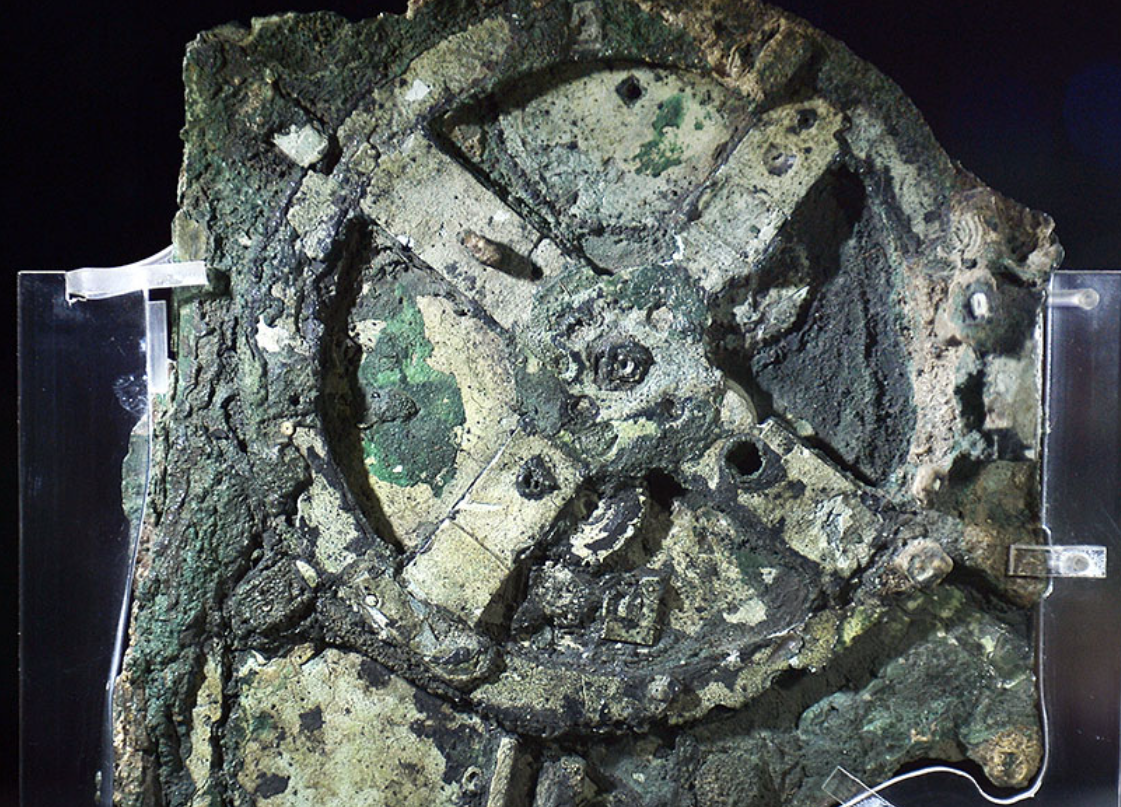Researchers have made significant strides in deciphering the secrets of the ancient Antikythera mechanism, often referred to as the world’s oldest computer. Discovered in a 2,000-year-old shipwreck near the Greek island of Antikythera, this complex clockwork device has long been a mystery to scientists and historians. Its intricate series of gears and dials were thought to have been used by ancient Greeks to predict astronomical positions and eclipses. However, until now, its full functionality remained unknown due to its corroded and fragmented state.
The groundbreaking research, led by an international team of scientists, utilized cutting-edge technology to decipher the Antikythera mechanism’s inscriptions and recreate its functions. The team used advanced X-ray scanning and 3D computer modeling to reveal details that were previously invisible due to corrosion and damage over the centuries.
The research results unravel the device’s use as an advanced astronomical calculator. The Antikythera mechanism was able to track the cycles of the solar system with extraordinary precision, including the movements of the sun, moon, and possibly even the planets. Fascinatingly, the device could also predict lunar and solar eclipses and could be set to specific dates or events, a feature that has led researchers to believe it was used for astrological purposes, as well as for teaching and learning about the cosmos.
The Antikythera mechanism is a testament to the advanced scientific knowledge and technological skills possessed by the ancient Greeks. This intricate device, made up of at least 30 bronze gears, showcases the sophistication of ancient engineering and astronomy. The researchers’ work not only illuminates the device’s functionalities but also provides invaluable insights into the scientific thinking and technological capabilities of that era.
Moreover, the successful analysis of the Antikythera mechanism paves the way for further research in the field of ancient technology. By applying modern scanning and imaging techniques, scientists can now explore and understand other ancient artifacts with a level of detail that was previously unattainable. This breakthrough in research methods holds great promise for the future exploration of antiquities, offering the potential to uncover new information about our human past and the evolution of scientific knowledge and technology.
In conclusion, the decoding of the Antikythera mechanism is a monumental achievement in the field of archeology and history. It not only unravels the mysteries of this ancient Greek device but also opens up new avenues for the exploration and understanding of other archaeological artifacts. The technological prowess of the ancient Greeks, as revealed through this analysis, is a testament to humanity’s long-standing quest for knowledge and innovation, and a reminder of the remarkable achievements of our ancestors.

How Advances in Gravitational Wave Research Are Unraveling an Ancient Enigma
Over the years, advancements in gravitational wave research have been instrumental in deciphering one of the most enigmatic aspects of our cosmos – the nature of gravity itself. Albert Einstein, in his General Theory of Relativity, first predicted the existence of gravitational waves, ripples in the fabric of spacetime caused by the acceleration of massive objects. However, it wasn’t until a century later, in 2015, that scientists at the Laser Interferometer Gravitational-Wave Observatory (LIGO) confirmed their existence. This groundbreaking discovery opened up a new realm of astrophysics, providing a novel method to understand the universe.
Since then, the detection of gravitational waves has allowed researchers to delve deeper into celestial events that were previously shrouded in mystery. For instance, the collision of black holes and neutron stars, phenomena that were once only theoretical, can now be observed and studied through the waves they produce. Moreover, gravitational waves have given scientists the ability to test the limits of Einstein’s theory in extreme conditions, contributing to our understanding of the fundamental properties of gravity.
Further advancements in the field are expected to shed light on some of the most perplexing questions in cosmology. By observing gravitational waves from the early universe, scientists hope to gain insights into the Big Bang and the subsequent evolution of the cosmos. In addition, gravitational wave research could potentially reveal the existence of theoretical entities such as dark matter and dark energy, which are thought to make up the majority of the universe.
Despite these achievements, gravitational wave research is still a nascent field with much to explore. However, the progress made so far has been remarkable, transforming our understanding of the universe. As we continue to refine our techniques and technology, it’s clear that gravitational waves will play a critical role in unveiling the mysteries of gravity and the cosmos.
Further Reading: Discover More Groundbreaking Scientific Discoveries
Dive deeper into the fascinating world of scientific exploration with further reading that illuminates more groundbreaking discoveries. Science, an inexhaustible treasure trove of knowledge, is constantly evolving and uncovering astonishing findings that challenge our thinking and expand our understanding of the universe. From unraveling the mysteries of black holes to the breakthroughs in genetic engineering, every discovery opens up a new frontier of possibilities. Engaging with these remarkable advancements will not only enrich your intellectual curiosity but also provide a glimpse into the future shaped by these discoveries.
One of the most intriguing areas of research is the study of our own DNA. The advancements in genetic engineering have opened up possibilities that were once confined to science fiction, such as gene-editing technologies like CRISPR, paving the way for potential cures for genetic diseases. Similarly, the mind-boggling discoveries in quantum physics, such as the concept of quantum entanglement, have the potential to revolutionize our understanding of the universe and the laws that govern it. The exploration of space continues to yield fascinating discoveries, from the presence of water on Mars to the detection of gravitational waves, providing us with invaluable insights into the cosmos.
In the realm of biology, the discovery of the structure of the cell and the process of evolution have given us a deep understanding of life itself. With the advent of technologies like electron microscopy and high-throughput sequencing, we are uncovering previously unknown aspects of cellular biology and genomics. The field of neuroscience has also made significant strides, with discoveries like neuroplasticity challenging our understanding of the human brain and its capacity for change and adaptation.
All these discoveries and many more await you in your further reading. Engage with the exhilarating world of scientific discovery and take a journey through the ever-expanding frontiers of human knowledge.

Explore More Insights into Cutting-Edge Science and Technology
Scientific and technological advancements are constantly evolving, offering us remarkable insights into the future. They provide us with a profound understanding of the universe and play a significant role in our daily lives. From the discovery of gravity to the development of the internet, science and technology have continually revolutionized our world. Today, cutting-edge science and technology continue to push the boundaries of what we know and what we can achieve.
In the realm of science, we are constantly learning more about our planet, our bodies, and the universe that surrounds us. Cutting-edge research in fields such as genetics and nanotechnology are providing us with the tools to improve human health, solve environmental issues, and even explore the possibility of life on other planets. Simultaneously, advancements in technology are transforming every aspect of our lives. Artificial intelligence and machine learning, for instance, are reshaping industries, creating new opportunities and challenges. They are overturning traditional business models, altering the way we work, and even changing our social interactions.
The exploration of these new frontiers is not just about the development of new technologies or the discovery of new scientific principles. It’s about understanding the profound implications that these developments have for our society and our future. For instance, how will the advent of autonomous vehicles impact our transportation systems? Or, how will the advancements in genetic engineering affect our approach to healthcare? These are the questions that researchers, policymakers, and society at large must grapple with as we delve deeper into the world of cutting-edge science and technology.
As we continue to explore and gain insights into these fields, we must remember the importance of ethical considerations and the potential societal impacts. The pace of scientific and technological innovation is swift, but it is essential that we navigate these advancements responsibly, ensuring they contribute positively to society and our collective future. The exploration of new frontiers in science and technology offers exciting possibilities and challenges, promising to reshape our world in ways we can’t yet fully imagine.
